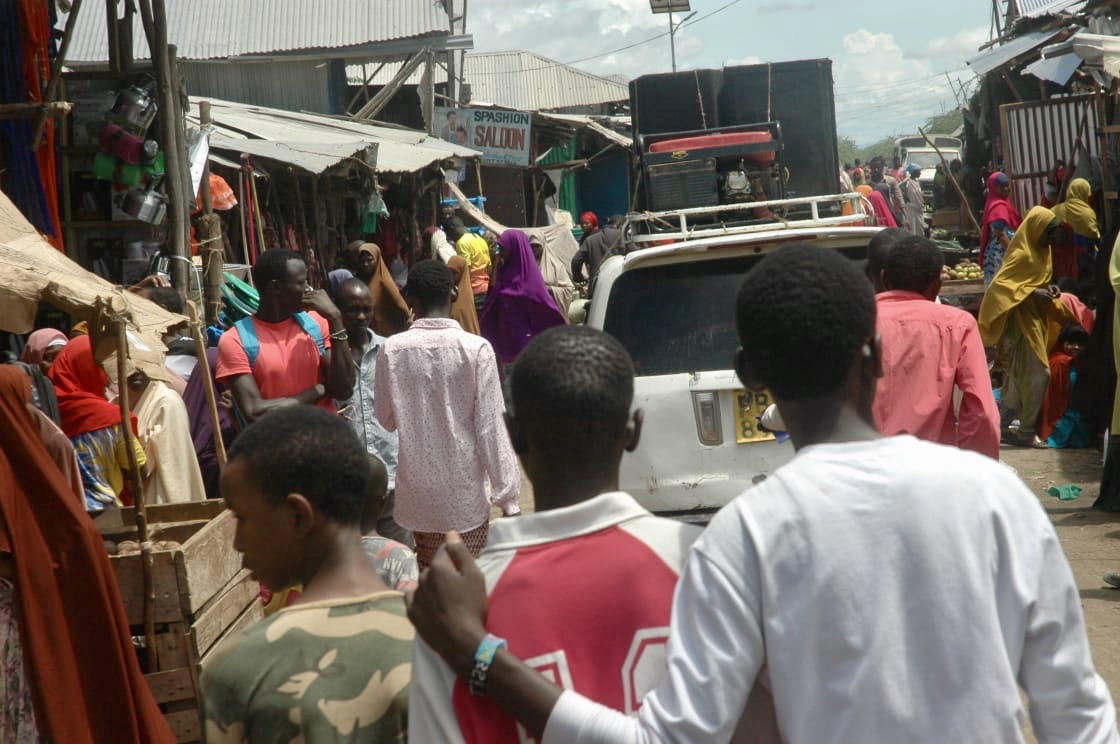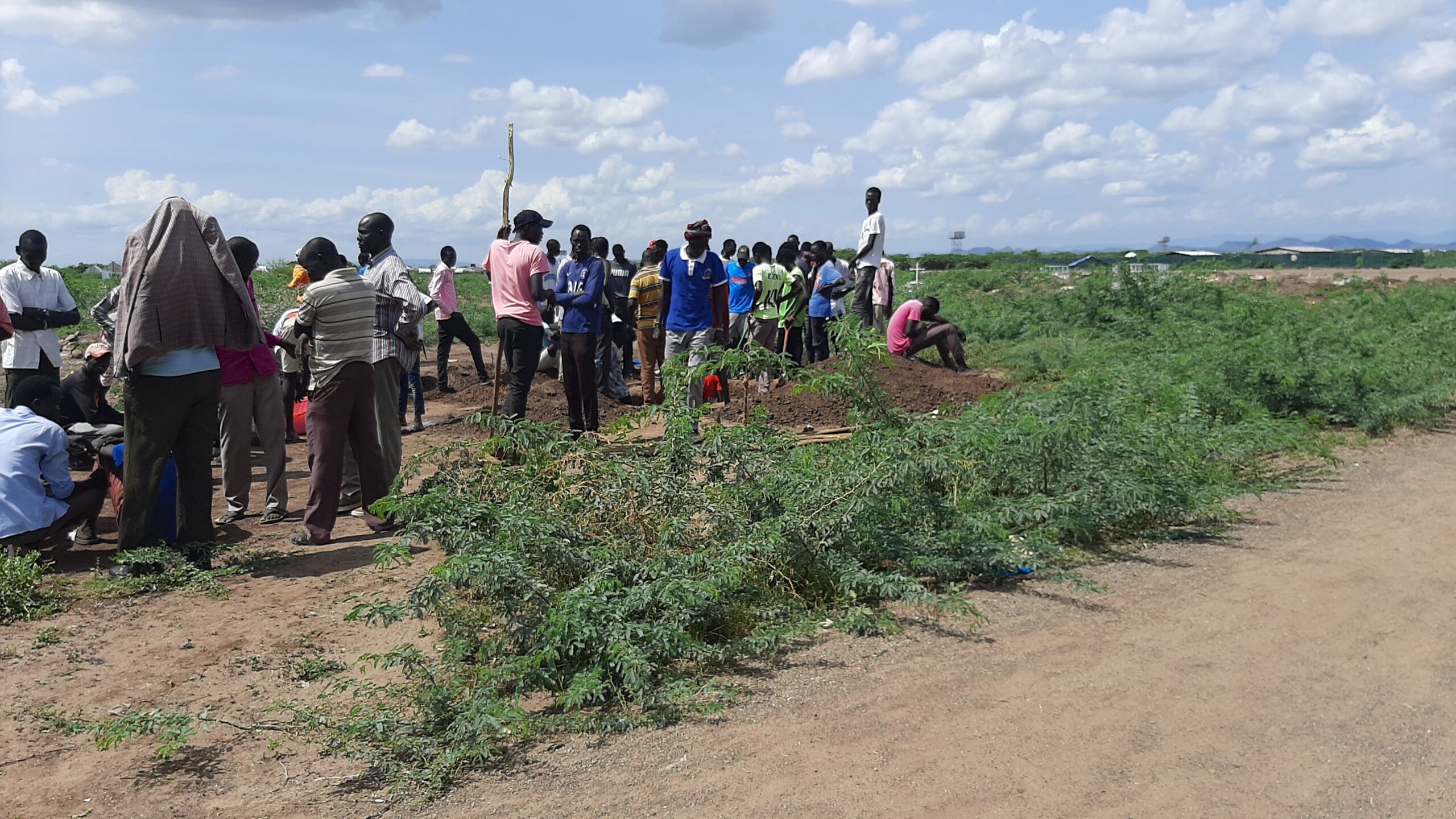By Tolossa Asrat – KANERE Staff Writer November 2020
Scientifically, it has been proven that wearing protective gear saves lives and that social distancing keeps the pandemic at bay. However, the residents of Kakuma and Kalobeyei have been reluctant to wear masks and keep their distance despite a surge in Covid-19 infections.

The refugee community recorded the first positive case of Covid-19 on May 29, 2020. As of mid- October 2020, 52 positive cases were identified within the refugee community, and the numbers are increasing.
Despite aggressive information campaigns by agencies, using face masks and maintaining social distancing is rare. This is especially harmful in crowded areas, such as the following:
• The Somali market in Kakuma One
• the Ethiopian market, also in Kakuma One,
• the Lizahua market,
• the market near the reception center at Kakuma 3,
• the new settlement markets at village 1 and village 3, and
• all water points as well as food distribution centers both.
Recently, a national newspaper reported that Turkana is one of four counties named as virus hotspots, creating a possibility for another lock down. The refugee camp has been in partial lock down since April 29 in order to keep the refugee community safe.
Some agencies and community-based organizations installed a temporary hand washing water tank in few communities at common places during May, June and July as a covid-19 emergency response. The aim was to provide a hand washing service for the members of the community and for any passersby.
Although the number of affected individuals is increasing, many camp residents are reluctant to wear masks and maintain social distance for different reasons. Regardless of their intentions, this might eventually increase the transmissions within the community.
“Wearing a mask while riding really gives me a feeling like I am detained in a Kakuma police station, imagine wearing a mask with helmet in this temperature,” said Alfered, a Burundian motorbike rider. As per the Kenyan Public Health Act, both riders and passengers are required to wear face masks and anyone guilty of not following the rules will have their motorbike detained and /or shall be liable for a fine not exceeding Ksh 20,000 or imprisonment for a period not exceeding 6 months.
Sami, an MPESA service provider, believes that Covid-19 is almost over and said “Wearing masks is distressing in this temperature.”
However, organizations like UNHCR and partners have re-arranged their work areas to enforce social distancing and make face masks mandatory during visitations.

Eva, a Burundian motorbike driver, notes that he has seen a lot of people at Kakuma 3 burial ground. While traveling to camp 4, he said “I am encountering a lot of people attending funeral ceremonies at Kakuma 3, Block 12. Almost on a daily basis.” The area is home to a diverse community, but is dominated by people from South Sudan and members from the Great Lakes community.
Aketch Akong, a South Sudanese faith leader, believes that Covid-19 cannot survive in the body of junub, an Arabic word which means people with dark skin color. According to Akong , he is confident that there is no one from South Sudan who has been infected by the virus.
The fact that some restrictions have been relaxed due to the economic recession might have created a sense of apathy in regards to the necessary precautions in.
Marta, a chairlady in Zone 2, camp 1, believes that imposing mandatory face masks in public places, as well as curfews and lockdowns is a good strategy to keep people safe. She is happy about the recent police patrol within her community. As per the rules of the Public Health Act (cap.242 laws of Kenya), wearing face masks is mandatory in public places for all persons in the country.
“While the world prepares to face the second wave of Covid-19, Kakuma refugees are in a giant sleep mood and they need to be alerted. But I don’t know how,” Said Abdi, one of KANERE’s offline broadcasters.
UNHCR and partners have also delivered cautionary messages about the pandemic, in multiple languages through text messaging platforms . A message circulated in July 2020 read: “With the ease of lockdown, does this mean that COVID-19 is over? No.COVID-19 is still here with us until a vaccination or medication to manage the virus is found.”
The offices of GIZ-CPS and Film Aid have been addressing the deadly pandemic using an offline broadcasting strategy to reach targeted audiences.
The GIZ–Civil Peace Service office, KCOMNET, and KANERE media have been alerting the community by using loudspeaker mounted cars. However, most refugees had stopped using masks and keeping social distance until the Kenya police intervened in Kakuma 1 area on 26th of October.
“Refugees in camps are remembering their masks when they are see Police vehicles,“ said Sabir, a leader in Kakuma 1.
Since the recent police operations, masks have been worn, but people are still complacent about maintaining proper mask hygiene. Most masks are produced here in the camp with cloth materials and need constant hygiene checkups by the users.
Samson, an incentive health officer at the International Rescue Committee, said that “delivering reports including recovery and death rates within the camps might change public attitudes.” According to him, most people are reluctant because they have not known or heard of anyone who died or was sick due to the pandemic in their community.
